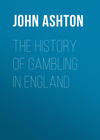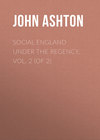Читать книгу: «The Dawn of the XIXth Century in England», страница 25
CHAPTER LI
Police – Dr. Colquhoun’s book – The old Watchmen – Their inadequacy admitted – Description of them – Constables – “First new mode of robbing in 1800” – Robbery in the House of Lords – Whipping – Severe sentence – The Stocks – The Pillory – Severe punishment – Another instance.
THE POLICE authorities very seldom attempted to interfere with these duels; indeed, practically there was no police. There were some men attached to the different police courts, and there were the parochial constables with their watchmen; but, according to our ideas, they were the merest apology for a police. Indeed, our grandfathers thought so themselves, and Dr. Colquhoun wrote a book upon the inefficiency of the police, which made a great stir. It was felt that some better protection was needed, as may be seen from two contemporary accounts: “Two things in London that fill the mind of the intelligent observer with the most delight, are the slight restraints of the police, and the general good order. A few old men armed with a staff, a rattle, and a lantern, called watchmen, are the only guard throughout the night against depredation; and a few magistrates and police officers the only persons whose employment it is to detect and punish depredators; yet we venture to assert that no city, in proportion to its trade, luxury, and population, is so free from danger, or from depredations, open or concealed, on property.”
“The streets of London are better paved, and better lighted than those of any metropolis in Europe; we have fewer street robberies, and scarcely ever a midnight assassination. Yet it is singular, where the police is so ably regulated, that the watchmen, our guardians of the night, are, generally, old decrepit men, who have scarcely strength to use the alarum which is their signal of distress in cases of emergency.”
Thus we see that even contemporaries were not enthusiastic over their protectors; and a glance at the two accompanying illustrations fully justify their opinion. “The Microcosm of London,” from which they are taken, says: “The watch is a parochial establishment supported by a parochial rate, and subject to the jurisdiction of the magistrates: it is necessary to the peace and security of the Metropolis, and is of considerable utility: but that it might be rendered much more useful, cannot be denied. That the watch should consist of able-bodied men, is, we presume, essential to the complete design of its institution, as it forms a part of its legal description: but that the watchmen are persons of this character, experience will not vouch; and why they are so frequently chosen from among the aged, and incapable, must be answered by those who make the choice. In the early part of the last century, an halbert was their weapon; it was then changed into a long staff; but the great coat and the lantern are now accompanied with more advantageous implements of duty – a bludgeon, and a rattle. It is almost superfluous to add, that the watch-house is a place where the appointed watchmen assemble to be accoutred for their nocturnal rounds, under the direction of a Constable, whose duty, being taken by rotation, enjoys the title of Constable of the night. It is also the receptacle for such unfortunate persons as are apprehended by the watch, and where they remain in custody till they can be conducted to the tribunal of a police office, for the examination of the magistrate.
The following little anecdote further illustrates the inefficiency of these guardians of the peace —Morning Herald, October 30, 1802: “It is said that a man who presented himself for the office of watchman to a parish at the West-end of the town, very much infested by depredators, was lately turned away from the vestry with this reprimand: ‘I am astonished at the impudence of such a great, sturdy, strong fellow as you, being so idle as to apply for a Watchman’s situation, when you are capable of labour!’”
Part of their duty was to go their rounds once every hour, calling out the time, and the state of the weather, and this was done to insure their watchfulness, but it must also have given warning to thieves. This duty done, they retired to a somewhat roomy sentry box, where, should they fall asleep, it was a favourite trick of the mad wags of the town to overturn them face downwards. Being old and infirm, they naturally became the butts and prey of the bucks, and bloods, in their nocturnal rambles; but such injuries as they received, either to their dignity, or persons were generally compounded for by a pecuniary recompense.
The Constable, was a superior being, he was the Dogberry, and was armed with a long staff.
Crime then was very much what it is now; there is very little new under the sun in wickedness – still, the Morning Post of February 3, 1800, has the
“First new mode of Robbing
in 1800
“A few days past, a man entered a little public-house, near Kingston, called for a pint of ale, drank it, and, whilst his host was away, put the pot in his pocket, and, without even paying for the beer, withdrew. The landlord, returning, two other men, who were in the room, asked him whether he knew the person who had just left the house? ‘No,’ he replied. ‘Did he pay for the ale?’ said they. ‘No,’ answered the other. ‘Why, d – n him,’ cried one of the guests, ‘he put the pot in his pocket.’ ‘The devil, he did!’ exclaimed the host, ‘I will soon be after him.’
“Saying this, he ran to the door, and the two men with him. ‘There, there, he’s going round the corner now!’ said one, pointing. Upon which the landlord immediately set off, and, cutting across a field, quickly came up to him. ‘Holloa! my friend,’ said he, ‘you forgot to pay for your beer.’ ‘Yes,’ replied the other, ‘I know that!’ ‘And, perhaps you know, too,’ added the host, ‘that you took away the pot? Come, come, I must have that back again, at any rate.’ ‘Well, well,’ said the man, and put his hand into his pocket, as if about to return the pot; but, instead of that, he produced a pistol, and robbed the ale-house keeper of his watch and money.
“This might seem calamity enough for the poor man; but, to fill up his cup of misfortune to the brim, he found, on reaching his home, that the two he had left behind, had, during his absence, plundered his till, stolen his silver spoons, and decamped.”
One of the most audacious robberies of those ten years, was one which took place on September 21, 1801, when the House of Lords was robbed of all the gold lace, and the ornaments of the throne, the King’s arms excepted, were stripped, and carried away. Nor was the thief ever found.
For minor offences the punishments were, Whipping, the Stocks, and the Pillory; for graver ones, Imprisonment, Transportation, and Death.
As a specimen of the offence for which Whipping was prescribed, and the whipping itself, take the following —Morning Post, November 4, 1800: “This day, being hay-market day at Whitechapel, John Butler, pursuant to his sentence at the last General Quarter Sessions, held at Clerkenwell, is to be publicly whipped from Whitechapel Bars, to the further end of Mile End, Town, the distance of two miles, for having received several trusses of hay, knowing them to have been stolen, and for which he gave an inferior price.”
The Stocks were only for pitiful rogues and vagabonds, and for very minor offences; but the Pillory, when the criminals were well known, and the crime an heinous one, must have been a very severe punishment; for, setting aside the acute sense of shame which such publicity must have awoke in any heart not absolutely callous, the physical pain, if the mob was ill-tempered, must have been great. As a proof, I will give two instances.
The first is from the Morning Herald, January 28, 1804: “The enormity of Thomas Scott’s offence, in endeavouring to accuse Capt. Kennah, a respectable officer, together with his servant, of robbery, having attracted much public notice, his conviction, that followed the attempt, could not but be gratifying to all lovers of justice. Yesterday, the culprit underwent a part of his punishment; he was placed in the pillory, at Charing Cross, for one hour. On his first appearance, he was greeted by a large mob, with a discharge of small shot, such as rotten eggs, filth, and dirt from the streets, which was followed up by dead cats, rats, &c., which had been collected in the vicinity of the Metropolis by the boys in the morning. When he was taken away to Cold Bath Fields, to which place he is sentenced for twelve months, the mob broke the windows of the coach, and would have proceeded to violence75 had the Police Officers not been at hand.”
The other is taken from the Annual Register, September 27, 1810: “Cooke, the publican of the Swan, in Vere Street, Clare Market, and five others of the eleven miscreants convicted of detestable practices, stood in the pillory in the Haymarket, opposite to Panton Street. Such was the degree of popular indignation excited against these wretches, and such the general eagerness to witness their punishment that by ten in the morning, all the windows and even the roofs of the houses were crowded with persons of both sexes; and every coach, waggon, hay-cart, dray, and other vehicle which blocked up great part of the streets, were crowded with spectators.
“The Sheriffs, attended by the two City marshals, with an immense number of constables, accompanied the procession of the prisoners from Newgate, whence they set out in the transport caravan, and proceeded through Fleet Street and the Strand; and the prisoners were hooted and pelted the whole way by the populace. At one o’clock, four of the culprits were fixed in the pillory, erected for, and accommodated to, the occasion, with two additional wings, one being allotted to each criminal. Immediately a new torrent of popular vengeance poured upon them from all sides; blood, garbage, and ordure from the slaughter houses, diversified with dead cats, turnips, potatoes, addled eggs, and other missiles to the last moment.
“Two wings of the pillory were then taken off to place Cooke and Amos in, who, although they came in only for the second course, had no reason to complain of short allowance. The vengeance of the crowd pursued them back to Newgate, and the caravan was filled with mud and ordure.
“No interference from the Sheriffs and police officers could restrain the popular rage; but, notwithstanding the immensity of the multitude, no accident of any note occurred.”
CHAPTER LII
Smuggling – An exciting smuggling adventure – The Brighton fishermen and the Excise – “Body-snatching” – “Benefit of Clergy” – Tyburn tickets – Death the penalty for many crimes – “Last dying Speech” – The “condemned pew” at Newgate – Horrible execution at Jersey – The new drop – An impenitent criminal.
THE OFFENCE of Smuggling, now all but died out, was common enough, and people in very good positions in life thought it no harm to, at least, indirectly participate in it. The feats of smugglers were of such every-day occurrence, that they were seldom recorded in the papers, unless there were some peculiar circumstances about them, such as shooting an excise man, or the like. In one paper, however, the Morning Post, September 3, 1801, there are two cases, one only of which I shall transcribe. “A singular circumstance occurred on Tuesday last, at King Harry Passage, Cornwall. A smuggler, with two ankers of brandy on the horse under him, was discovered by an exciseman, also on horseback, on the road leading to the Passage. The smuggler immediately rode off at full speed, pursued by the officer, who pressed so close upon him, that, after rushing down the steep hill to the Passage, with the greatest rapidity, he plunged his horse into the water, and attempted to gain the opposite shore. The horse had not swam half way over, before, exhausted with fatigue, and the load on his back, he was on the point of sinking, when the intrepid rider slid from his back, and, with his knife, cut the slings of the ankers, and swam alongside his horse, exerting himself to keep his head above water, but all to no purpose; the horse was drowned, and the man, with difficulty, reached the shore. The less mettlesome exciseman had halted on the shore, where he surveyed the ineffectual struggle, and, afterwards, with the help of the ferryman, got possession of the ankers.”
Sometimes it was done wholesale, see the Morning Herald, February 17, 1802: “Last Thursday morning, the Brighton fishermen picked up at sea, and brought to shore, at that place, upwards of five hundred casks of Contraband spirits, of which the Revenue officers soon got scent, and proceeded, very actively, to unburden the fishermen. This landing and seizing continued, with little intermission, from six to ten, to the great amusement of upwards of two thousand people, who had became spectators of the scene. When the officers had loaded themselves with as many tubs as they could carry, the fishermen, in spite of their assiduity, found means to convey away as many more, and by that means seemed to make a pretty equal division. The above spirits, it appeared, had been thrown overboard by the crew of a smuggling vessel, when closely chased by a Revenue Cutter.”
We may claim that one detestable offence, then rife, is now extinct. I allude to “Body-snatching.” It is true that anatomists had, legally, no way of procuring subjects to practise on, other than those criminals who had been executed, and their bodies not claimed by their friends; but, although the instances on record are, unfortunately numerous, I have already written of them in another book, and once is quite sufficient.
Of one or two legal curiosities now extinct, I may mention “Benefit of Clergy,” an institution established in our early history, in order to screen a clerk, or learned man, from the consequences of his crime. In case of felony, one had but to plead ability to read, and prove it, and the sentence was commuted to branding the hand with a hot iron. It was a privilege much abused, but it lingered on until 1827, when it was abolished by the Act, 7 and 8 Geo. IV. cap. 28.
Another curious custom, now also done away with, we meet with, in an advertisement in the Morning Herald, March 17, 1802: “Wanted, one or two Tyburn Tickets, for the Parish of St. George’s, Hanover Square. Any person or persons having the same to dispose of, may hear of a purchaser,” &c. These tickets were granted to a prosecutor who succeeded in getting a felon convicted, and they carried with them the privilege of immunity from serving all parochial offices. They were transferable by sale (but only once), and the purchaser enjoyed its privileges. They were abolished in 1818. They had a considerable pecuniary value, and in the year of their abolition, one was sold for £280!
“Tyburn” reminds us of the fearful numbers sentenced to death at that time. The law sadly wanted reformation in this respect; besides murder, coining, forgery, &c., many minor offences were punishable with death, although all convicted and sentenced were not executed; some being reprieved, and punished with transportation. George III. had a great dislike to capital punishment, and remitted the sentence to as many as he could. Take as an example of the awful severity of the law, only one sessions at the Old Bailey, ending September 24, 1801: “Sentence of death was then passed upon Thomas Fitzroy, alias Peter Fitzwater, for breaking and entering the dwelling-house of James Harris, in the daytime, and stealing a cotton counterpane. Wm. Cooper for stealing a linen cloth, the property of George Singleton, in his dwelling-house. J. Davies for a burglary. Richard Emms for breaking into the dwelling-house of Mary Humphreys, in the daytime, and stealing a pair of stockings. Richard Forster for a burglary. Magnus Kerner for a burglary, and stealing six silver spoons. Robert Pearce for returning from transportation. Richard Alcorn for stealing a horse. John Nowland and Rd. Freke for burglary and stealing four tea spoons, a gold snuff-box, &c. John Goldfried for stealing a blue coat. Joseph Huff, for stealing a lamb, and John Pass for stealing two lambs.”
In fact, the “Tyburn tree” was kept well employed, and yet, apparently, the punishment of death hardly acted as a deterrent. A sad, very sad street cry, yet one I have often heard, was of these poor wretches; true, it had been made specially to order, in Catnach’s factory for these articles, in Monmouth Court, Seven Dials; but still it was the announcement of another fellow-creature having been done to death.
The executions which would arise from the batch of sentences I have just recorded, would take place at Newgate. The last person hanged at Tyburn, having suffered, November 7, 1783, and the above illustration shows in a peculiarly graphic manner, the condemned sermon, which was preached to those about to die on the morrow. To make the service thoroughly intelligible to them, and to impress them with the reality of their impending fate, a coffin was set in the midst of the “condemned pew.”
Crowds witnessed the executions, which took place in the front of Newgate, and on one occasion, on the 23rd of February, 1807, an accident occurred, by the breaking of the axle of a cart, whereon many people were standing; they were not only hurt, but the crowd surged over them, and it ended in the death of twenty-eight people, besides injuries to many more.
We have seen, in February, 1885, a murderer reprieved, because the drop would not act; but in the following instance, the criminal did suffer, at all events, actual pain. It happened at Jersey, on the 11th of May, 1807, and is thus chronicled in the Annual Register for that year: “After hanging for about a minute and a half, the executioner suspended himself to his body; by whose additional weight the rope extended in such a manner that the feet of the criminal touched the ground. The executioner then pulled him sideways, in order to strangle him; and being unable to effect this, got upon his shoulders; when, to the no small surprise of the spectators, the criminal rose straight upon his feet, with the hangman upon his shoulders, and loosened the rope from his throat with his fingers. The Sheriff ordered another rope to be prepared; but the spectators interfered, and, at length, it was agreed to defer the execution till the will of the magistrates should be known. It was subsequently determined that the whole case should be transmitted to His Majesty, and the execution of the sentence was deferred till His Majesty’s pleasure should be known.”
A platform which suddenly disappeared from under the criminal seems to have been invented in 1807, for we read under 27th of July of that year, that John Robinson was executed at York “on the new drop,” but something of the same kind had certainly been used in 1805.
As a rule, the poor creatures died creditably; but there is one case to the contrary, which is mentioned in the European Magazine, vol. xlvii. pp. 232-40. A man named Hayward was to be hanged for cutting and maiming another. The scene at the execution is thus described: “When the time for quitting the courtyard arrived, Hayward was called to a friend to deliver him a bundle, out of which he took an old jacket, and a pair of old shoes, and put them on. ‘Thus,’ said he, ‘will I defeat the prophecies of my enemies; they have often said I should die in my coat and shoes, and I am determined to die in neither.’ Being told it was time to be conducted to the scaffold, he cheerfully attended the summons, having first ate some bread and cheese, and drank a quantity of coffee. Before he departed, however, he called out, in a loud voice, to the prisoners who were looking through the upper windows at him, ‘Farewell, my lads, I am just a going off; God bless you!’ ‘We are sorry for you,’ replied the prisoners. ‘I want no more of your pity,’ rejoined Hayward; ‘keep your snivelling till it be your own turn.’ Immediately on his arrival upon the scaffold, he gave the mob three cheers, introducing each with a ‘Hip, ho!’ While the cord was preparing he continued hallooing to the mob.
“It was found necessary, before the usual time, to put the cap over his eyes, besides a silk handkerchief, by way of bandage, that his attention might be entirely abstracted from the spectators… He then gave another halloa, and kicked off his shoes among the spectators, many of whom were deeply affected at the obduracy of his conduct.”
Покупайте книги и получайте бонусы в Литрес, Читай-городе и Буквоеде.
Участвовать в бонусной программе



















